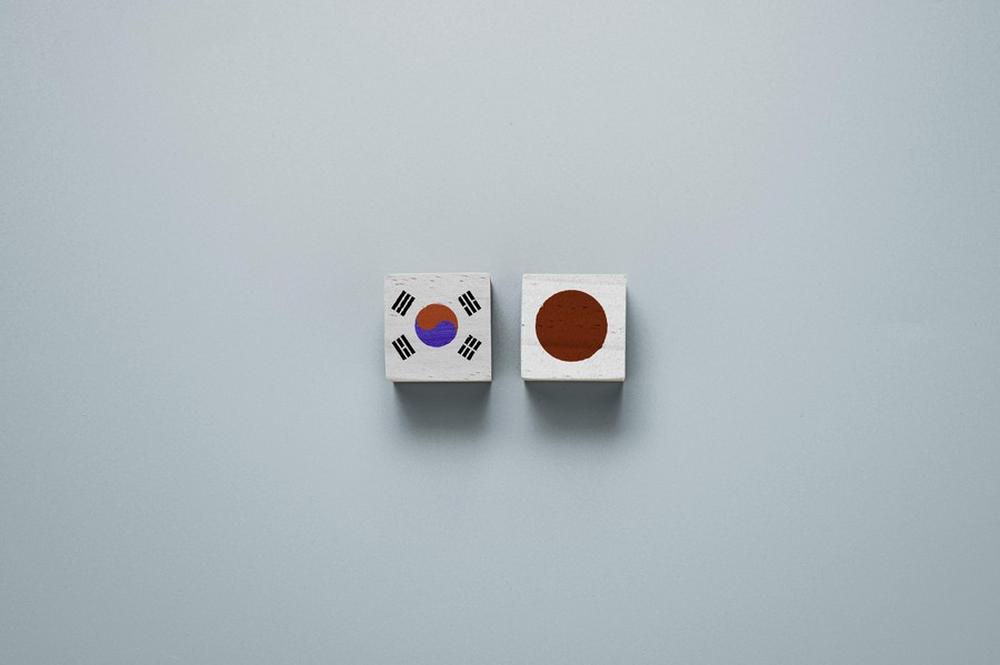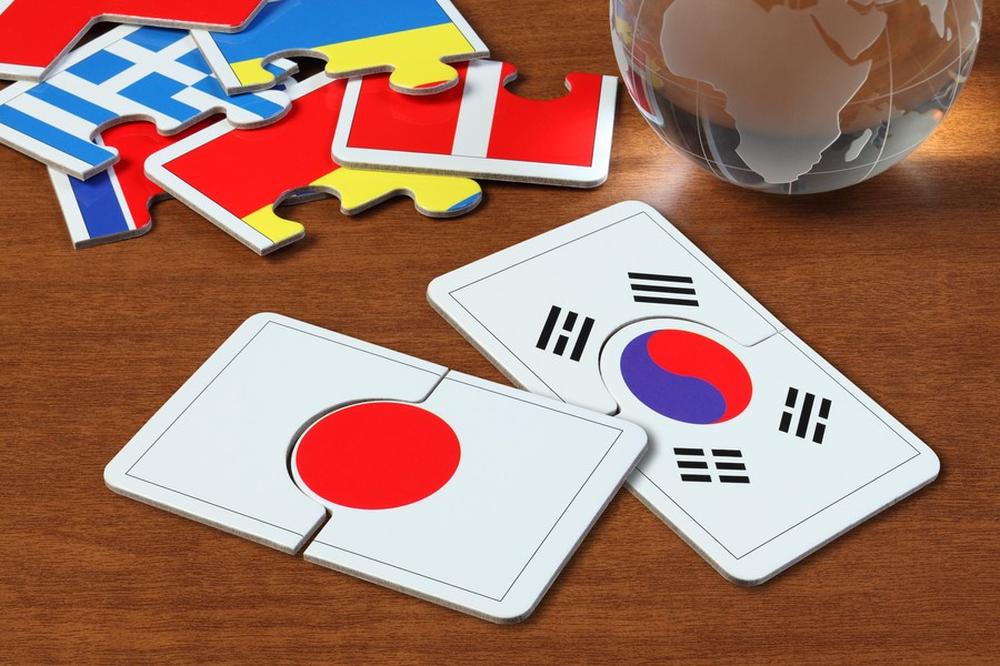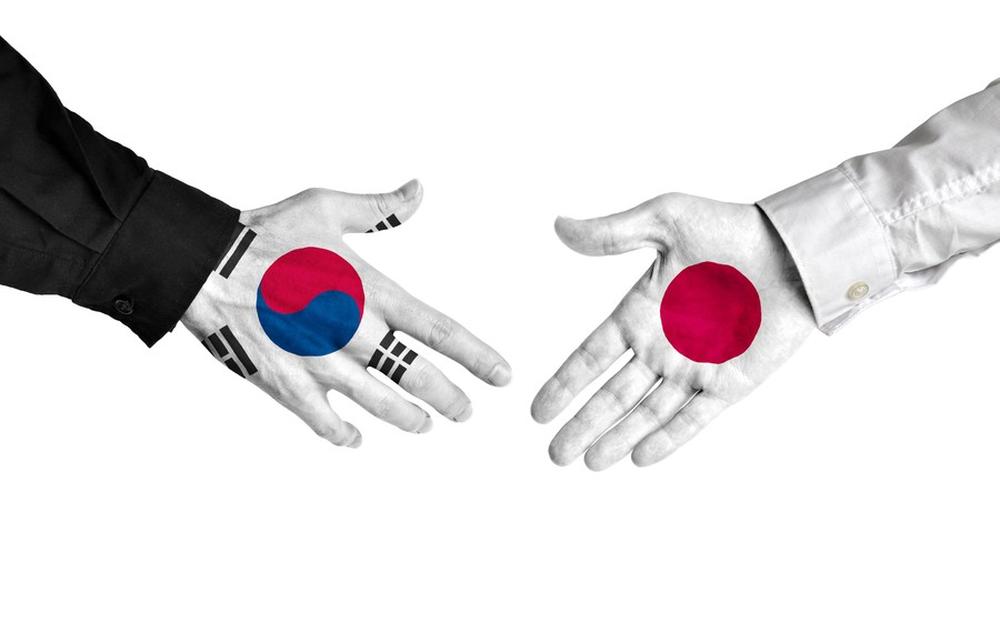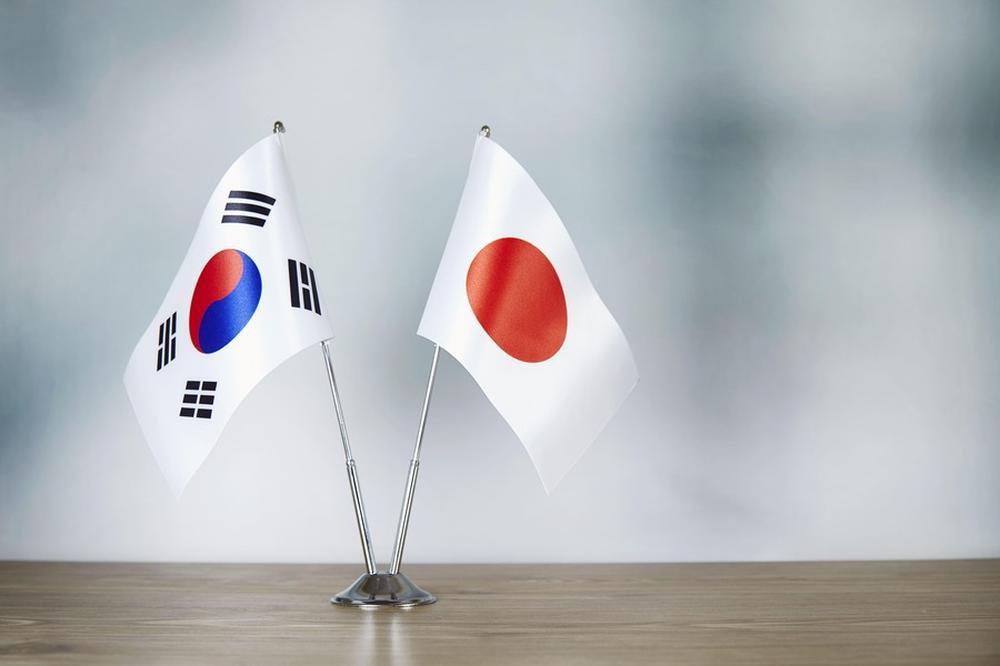- #Japan
- #South Korea
- #US Foreign Policy

► By contrast, my research shows that history tends to follow –rather than drive—strategic relations. Namely, when countries view cooperation in their national interest, leaders work to create a shared narrative about the past.
► A sense of shared threat -- both in terms of declining American credibility, and a shared enemy’s growing power -- brings the countries closer together. But today in East Asia, Japan and South Korean threat perception do not seem to be converging.
► Between diverging views of China and domestic political trends in Japan and South Korea, history issues are unlikely to fade into the past.
Relations between Seoul and Tokyo have been troubled in recent years, but Japan will soon have a new prime minister, and South Korea will choose a new president in the spring. What are the issues that divide the two countries; how might these change to permit closer relations; and how will leadership changes influence bilateral relations?
At the outset it’s important to remember what the two countries have in common. Japan and South Korea are democracies with shared liberal values; they are close trade partners, leaders in global governance and society, and are among the world’s most wealthy and technologically innovative countries. Japanese and South Koreans love visiting each other’s countries (before the disruption of COVID-19), and love each other’s popular culture. They are also both longtime treaty allies of the United States.
Given all that the two countries share, people often express confusion that Japan and South Korea aren’t closer politically and militarily. The biggest sign of distance between them is the recurring “history problem”: disputes about the memory of Japan’s annexation of Korea in the early twentieth century, and atrocities that Japan committed against Koreans during this time. Prominent victims include the “comfort women” or “wartime sex slaves,” and Koreans who were brought to Japan and forced to work in wartime factories in brutal conditions.
History Doesn’t Stand in the Way
Observers frequently characterize the history issue as an obstacle to better bilateral relations. According to this view, Japan and South Korea must resolve history issues before they can cooperate vis-à-vis North Korea, China, and so forth. By contrast, my research shows that history tends to follow –rather than drive—strategic relations. Namely, when countries view cooperation in their national interest, leaders work to create a shared narrative about the past. Such dynamics were evident in US-Japan relations, Franco-German relations, as well as many other cases of reconciliation. In this view, if Japan and South Korea share common interests, their leaders will smooth over—rather than inflame—controversies about historical memory.
At times we’ve seen Japan and South Korea move in this direction. As scholar Victor Cha has argued, when the countries faced concerns about both regional threats and the credibility of U.S. alliance commitments, they managed to put history behind them. This was evident in the 1980s, because Richard Nixon and later Jimmy Carter appeared to be backing away from U.S. regional alliances in the wake of the Vietnam War, and because of the Soviet military buildup in Asia.
Such dynamics were also evident more recently under Japan’s prime minister Shinzo Abe. Abe, a conservative, favors emphasizing patriotism and national pride rather than dwelling on Japan’s wartime atrocities and the suffering they caused in the region. In 2013 he visited Yasukuni Shrine, which honors Japan’s war dead but is a troubling symbol in the eyes of Japan’s former victims. Abe also declared his intention to “study” the famous Kono Statement: Tokyo’s landmark, official acknowledgement of the Imperial Army’s involvement in the military sex slave program. Such actions created an uproar among Koreans and others.
Abe later tempered his actions. Alarmed by the growing threat from China, Abe sought closer relations with the United States and other regional partners—including South Korea. He left the Kono statement alone. And, in a 2015 statement on the seventieth anniversary of World War II’s end, Abe self-consciously followed the structure of previous official apologies. His government also signed an agreement about the “comfort women” in 2015 with Park Geun-hye’s government, in which Japan issued an apology and paid official reparations. As for South Korea, Park’s pragmatic approach toward the agreement -- after various policies that had kept Tokyo at arm’s length -- reflected a spirit of compromise and a sign of shared threat perception.
Hope for the Future?
The good news is that history does not inevitably impede closer Japan-ROK ties. A sense of shared threat -- both in terms of declining American credibility, and a shared enemy’s growing power -- brings the countries closer together. But today in East Asia, Japan and South Korean threat perception do not seem to be converging.
Japan’s primary national security concern is an increasingly powerful and assertive China. Japan and China have a territorial dispute over the Senkaku/Diaoyu islands. The Japanese have countered China’s growing push for regional dominance with the idea of a “Free and Open Indo-Pacific.” Japan has maintained close alliance relations with the United States and is partnering with the “Quad”: a nascent balancing coalition consisting of the United States, Australia, and India.
South Korea, however, has been careful not to antagonize China by participating in an apparent balancing coalition against it. It has no territorial dispute with China, and values China’s leverage over North Korea. Seoul knows that China will play an influential role in any settlement about Korean unification. China is also the ROK’s major trading partner. As such Seoul has hedged in its relations between China and the United States. Perhaps in the future South Koreans may grow more alarmed about China—indeed relative to the past, concern has already grown. However so far, in its desire to avoid antagonizing Beijing, South Korean national security policy has not converged with Japan.
New Leadership, New Direction?
How will relations fare under new leadership in Japan and South Korea? With elections scheduled for the end of October, Japan will soon have a new prime minister. The Liberal Democratic Party (LDP) just selected its next leader: Fumio Kishida. Given the weakness of Japan’s opposition parties, Kishida is likely to be the country’s next prime minister.
Kishida is a representative from Hiroshima, and a third-generation member of Japan’s Diet. He served as foreign minister under Abe from 2012-2017. During this period, in 2015, he negotiated with Seoul the “final, irreversible” agreement on the comfort women. Kishida is seen as a careful, rather uninspiring moderate whose elevation comes from strong factional backing rather than from national popularity.
Kishida’s elevation to head of the LDP thus represents continuity rather than significant change in the LDP. He is unlikely to stir up trouble in relations with Seoul—as another candidate, far-right conservative Sanae Takaichi, might have done. However Kishida is also unlikely to deviate from previous LDP policy. Namely, Kishida is likely to subscribe to the party’s position that the issue was settled in 2015—particularly because he was the foreign minister who negotiated the agreement. Similarly, Kishida is unlikely to be sympathetic to Korean calls for Japanese firms to pay reparations to wartime forced laborers; the LDP considers this matter settled by the 1965 normalization agreement. If South Koreans were hoping for a dramatic leadership change in Tokyo to better align with their policy preferences, they will be disappointed.
The Japanese will similarly be disappointed if progressive dominance continues in South Korea. Brian Kim notes, “the foreign policy of South Korean liberals is clear: promoting harmony with North Korea, justice against Japan, and, wherever possible, autonomy from great power interference, including that of Washington.” This is not a recipe for South Korea tilting toward Washington and Tokyo—but rather for continued hedging.
Progressives are more likely to press for further apologies and reparations from Tokyo. For example, when Park’s government negotiated the comfort women deal, Representative Moon Jae-in (who was then the leader of the main opposition party) called it “the worst diplomatic catastrophe of all time.” He linked the agreement to Korea’s “humiliating diplomacy” from 1965, and called the negotiation “disgraceful.” Between diverging views of China and domestic political trends in Japan and South Korea, history issues are unlikely to fade into the past.
Jennifer Lind is an Associate Professor of Government at Dartmouth College and a Research Fellow at Chatham House in London. She is the author of Sorry States: Apologies in International Politics (2008). Lind writes widely on the international security relations of East Asia and U.S. foreign policy toward the region. She is writing a new book on great-power competition between authoritarian and democratic countries.


